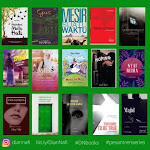Do’s and Don’ts
I surveyed a group of agents and asked: When a writer pitches on paper or in person, do you look at the project differently, would you say there are things not to do in person? Here are their answers:Says Paul Lucas of Janklow & Nesbit Associates, “My main advice to writers is that they think of any pitch, on page or in person, as performative: It needs to fly off the page, regardless of whether you’re there to deliver it personally. So read those queries out loud to friends before sending them. And when that opportunity to trap an agent in an elevator materializes, be prepared to entice him quickly! You may not have more than 2-3 sentences; don’t waste them describing the opening or summarizing the plot. Make that in-person pitch a simulacra of your amazing book.”Janet Reid of FinePrint Literary Management replied, “The clearest difference is that authors are often so nervous meeting an agent in person that it gets in the way of everything. The main thing an author shoulddo is realize an in-person pitch is not an audience with Her Majesty. It’s talking to a potential fan of your work. Be as natural as possible. Don’t memorize a “pitch” even as you would not memorize “hello, nice to meet you” at a party. Simply tell me what your book is about and then stop talking. Let me ask some questions. But mostly, try to relax. No writer was ever eaten by an agent. Not even agents who are sharks.”Agent Sheree Bykofsky of Sheree Bykofsky Associates, Inc., author of The Complete Idiot’s Guide to Getting Published, shares, “I would say, don’t read or recite your memorized written words. Speak naturally and slowly and from your heart. Answer the following questions before they are asked: Why is this a good and viable project? Who is the audience? And why are you the best author to write this?”Brooks Sherman of FinePrint Literary Management says: “I think the in-person pitch and the on-paper pitch are two different animals. If you recite your written pitch aloud, it sounds dead; and if you write your pitch the way you’d tell it, it might come off too informal. When pitching in person, I’d recommend looking at your written pitch, finding the two or three buzz words or terms you want to hit on, and find a way to incorporate those into your speech. Also, don’t make it a monologue—if I like your pitch, I’m going to interrupt to ask questions, so be prepared for a conversation.“I like to hear a writer talk about their work with excitement—which can be hard to do if you’re reciting your pitch verbatim from how you wrote it,” adds Sherman. “Just tell me the coolest thing about your project, and when I see your eyes light up, I’ll get excited too.”“Always look the agent in the eye as you pitch—if you must read your pitch, fine, but say so up front, and then plan on a sincere and impromptu interchange at the end. Eye contact goes a long way to establishing a personal connection,” says April Eberhardt of April Eberhardt Literary.Marisa A. Corvisiero of Corvisiero Literary Agency offers this advice: “Good querying is about thorough research, attention to detail and a good story. Of course the writing speaks for itself, but the query format is different, and it’s important to provide the information that agents need to consider the author’s work. It is almost as if queries require an additional skill altogether. It’s the skill to sell…to make things sound good in addition to the normal etiquette that the query requires.”Be Prepared for Questions
The in-person pitch meeting also gives you the chance to ask questions.3 Key questions to ask an agent:
- Does my book idea feel fresh enough? If yes, what in particular do you like? If no, what seems too generic?
- What is my most interesting point? Which area needs the most work? What would make this stand out?
- What was the first red flag, or reason that would prevent you from wanting to read—and represent—me?
Your pitch will succeed if you:
- Use the pitch to deliver enough of the flavor of the book to whet the reader’s appetite for more.
- Show what we can learn from you about how to handle this life problem or challenge. Tell us: What do I do differently after I read your book, what could I not figure out without you? Show how much texture, how much scope there is to the subject. What are three quick tips or hints of the “practical and prescriptive” advice to come?
- Speak about a topic or nonfiction subject or memoir showcasing the groundbreaking, or new, focus you can encapsulate and state clearly.
- Keep calm and carry on even—if it appears the agent is getting glassy eyed, eyeing the bar, or squirming as if her buttock or her foot has fallen asleep.
Your pitch will fail if you:
- Don’t leave home with a “money shot,” a clear, core point about why this book will find readers.
- Ramble, or use many prefaces or qualifiers.
- Rely on reviews or references from gurus, editor feedback, or spousal support.
The practice of Pitchcraft™, writing about your writing and speaking about your writing, is every bit as important as the writing itself. You want to put as much passion, attention, savvy, and as much crafting into your pitch—as you do your project.If the pitch had been the thing, Shakespeare might have summed up thus:…To write, to weep
No more; for by a successful pitch, to say we end
The heart-ache, and the thousand natural knocks
That pitch is heir to. ‘Tis representation devoutly to be wished.
by sarah, from : internet
Pitching
Tags
# pitching
# tips
writerpreneurship
Labels:
pitching,
tips,
writerpreneurship
Langganan:
Posting Komentar (Atom)







.jpg)

.jpg)






Tidak ada komentar:
Posting Komentar